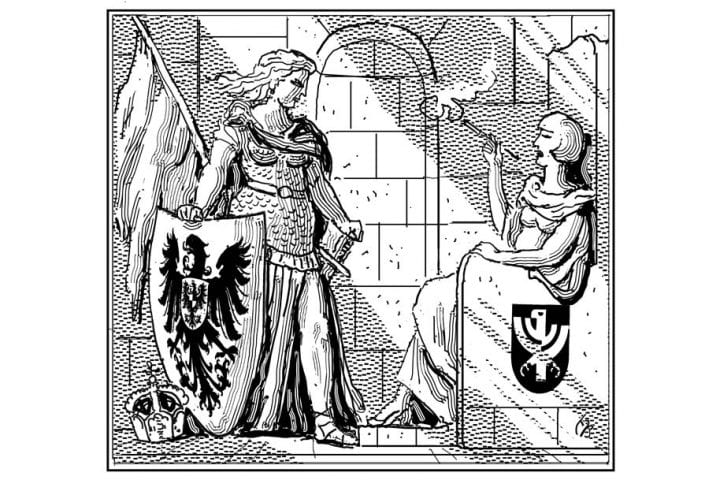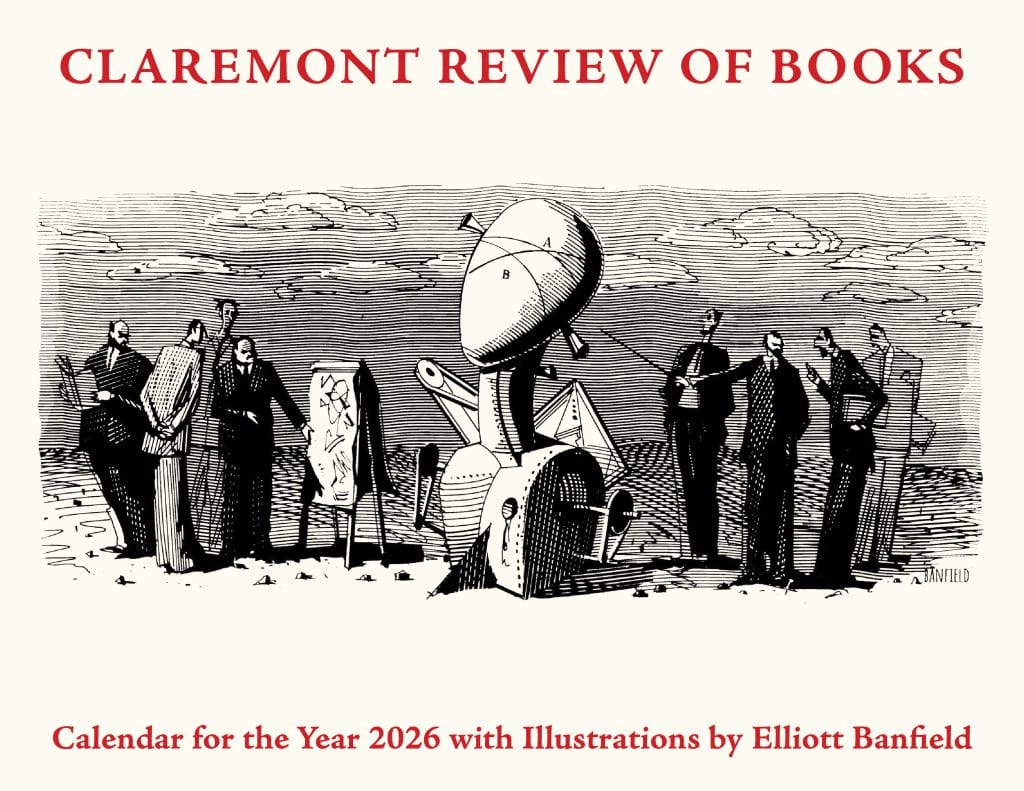Book Reviewed
Parenting is hard. Writing well about parenting is even harder. Americans have transformed what was once a natural function, guided by age-old conventions and instincts, into an elaborate, minutely analyzed project beset by conflicting recommendations and expectations. A steady stream of works on childrearing, family life, and parent-child relations pours from our presses—tomes of ethnography, psychology, and sociology with scholarly pretensions, memoirs fond and gruesome, and volumes filled with advice from the homely to the expert. We can’t seem to get enough. Yet what do all these tracts amount to? As a parent myself, an aficionado of such works, and with an academic interest in how children become contributing citizens, my answer is: not much, and little of use to the average American parent.
This doesn’t stop bookstores from being well-stocked with parenting guides. Through this welter of advice there has emerged a rough “goldilocks” consensus, at least among the educated class: don’t be too “permissive” or “authoritarian,” but embrace the happy medium of “authoritative”—that delicate balance of stability and consistency, reasonable limits and patient explanation, that keeps children centered while nurturing their “authentic selves.” The grounds for this advice are dubious and obscure, and some of society’s most successful children—offspring of recent Asian immigrants for instance—are seldom raised this way, but that hasn’t dented the idea’s appeal. Nor has the commonplace observation that what works for one child may not for another—a fact likely traceable to children’s varied natural endowments. As Harvard psychologist Steven Pinker and others have noted, most experts resist the notion that biology is important—sometimes more important than upbringing. A commitment to a blank-slate ideology, with its emphasis on nurture and parenting, renders much research in child development, and much childrearing advice based on it, virtually useless.
* * *
Into this quagmire wades Matt Feeney, a journalist, writer, and father of three from Oakland, California. Borrowing his title from Edmund Burke, he offers a very personal take on the “little platoon” Burke deemed foundational: the nuclear family. Feeney doesn’t claim to provide a “how to” guide or a systematic take on childrearing practices. Rather, relying mostly on his own experiences, impressionistic observations of fellow parents, and occasional dips into the social science literature, he paints a wide-ranging portrait of the quirks and perversities of our current parenting culture. The picture that emerges is not a happy one. Little Platoons amounts to a sustained lament that borders on a dirge.
Feeney’s chief complaint is neither original nor unfamiliar: modern families—at least the ones he knows best—find themselves running an anxious, taxing, frenetic race. Their grim gauntlet includes “parenting in public” (engaging in displays of “good parenting” for the benefit of other parents and helping professionals), dealing with the absurdities of preschool admissions, keeping up with the non-stop frenzy of competitive youth sports, managing a hypnotically mesmerizing online world, and, most importantly, navigating the treacherous, high-stakes college admissions process. What’s the purpose of this ordeal? To secure for their children a place in the university-to-elite pipeline, the only sure path to life at the top of society. That means getting them into a prestigious, selective college.
* * *
Feeney depicts the college admissions obsession as malign and corrosive. By “rewiring” family priorities, invading privacy, distorting relationships, consuming leisure, hijacking finances, and squelching creativity and spontaneity, the college chase regiments every aspect of parents’ and children’s lives. The strenuous exertions required to slip through the “tiny keyhole” into a top university have a particularly baleful effect on children, deforming their individuality and reordering their interests in directions deemed desirable by the gatekeepers to selective institutions.
Feeney is unrelentingly critical of these gatekeepers, the “vain and blinkered personnel” who decide which teenagers procure a prized place in sought-after colleges. By insisting America’s teens “make themselves legible” to its bureaucracy and “morally agreeable” to its shifting and ambiguous pronouncements on what colleges are “looking for,” the arbiters of college admissions comprise “a serious shaping force in American society.” They exert their vast influence over the “lives and psyches, the values and beliefs, the self-conception and well-being of individual teens, entire cohorts of college bound children and the entire cultures of American childhood and childrearing.” Feeney sees great danger in this “unearned power.” The iron vise of “fearful striving” in which the admissions process holds applicants and their parents is a formula for misery, rendering family life “anxious, unhappy, and more pessimistic than necessary.”
But this dire account is unpersuasive on several fronts. Feeney seems oblivious to the limited reach of the high-stakes college rat race. Fewer than 5% of college students attend schools that accept less than a third of their applicants, and most colleges admit most students who apply. Likewise few parents—tilting heavily toward the educated, white, married, and upper-middle class—have the time, interest, or resources to commit to competitive, high-stakes youth sports, or to attend exclusive preschools, or to even think about sending their children to expensive, top-tier colleges. Yet nowhere does Feeney recognize or remark on the sheer parochialism of these preoccupations, and how few people live the life he describes.
* * *
The real problem with Feeney’s indictment is that, as we say in law, it proves too much. Feeney seems affronted by the very idea of outside pressures being brought to bear on families. He appears presumptively suspicious toward anything that disturbs its rhythms and invades its private space. But the rough intrusions of the college admissions race hardly stand as a unique example of society’s influence over family life. More broadly, throughout time and space, outside forces of various kinds—economic necessity, moral expectations, and the conventions of culture, custom, and citizenship—have shaped the atmosphere of families and how children are brought up in directions both sinister and salutary. Family members have reacted by alternatively acquiescing and resisting. Ferdinand Mount, in The Subversive Family (1982), shows how faiths and totalizing ideologies work to undermine family loyalties, which interfere with their authority over hearts and minds. In Haven in a Heartless World (1977) Christopher Lasch describes how the family serves not just as society’s handmaiden but also as a counterweight and refuge from harsh expectations and economic strictures. For both authors, the family sometimes opposes the pressures of society—as a buffer and protector of higher, endangered values and as a potentially subversive influence that undermines larger purposes. But as Lasch also points out, societies need and depend on families to ready children to meet the world’s demands. An important role for the family is to socialize, which Lasch defines as “getting children to do what they ought to do.” When childrearing fails to fulfill that function, civilizations suffer.
Feeney’s small book cannot be expected to supply a complete, nuanced theory of the family’s place in society or the best way to raise children. Yet his critique of the college rat race implicitly reveals a distinctly modern view of family life. For Feeney, the family unit serves as a vital locus of expressive individualism, a forum for free-wheeling self-exploration, a place of unconstrained self-discovery, and a crucible of self-actualization. This conception is not just demographically rare but also highly romantic. His ideal families take stability for granted and assume the satisfaction of basic needs. They are free to cultivate a mystical “distinct culture” of unhurried togetherness, of mutual tastes and interests, of sweet affection and inside jokes. (He describes his own family life with a fey sentimentality that can be cloying.) For Feeney, an uncompetitive, unpressured environment is ideal for proper childrearing. In this sheltered and halcyon realm, unique personalities flourish and grow. It is essential, then, that families be allowed to protect their blissful ecology, to live their lives at a leisurely pace, to kick back, explore, and have fun. Families shouldn’t run around pleasing others or feel the need to fulfill an approved agenda. Playfulness, good times, and private antics are essential. Impositions on this idyll, such as the urgent imperatives of college admissions, are necessarily destructive.
* * *
In holding up this paradigm Feeney seems oblivious or indifferent to alternatives—other eras and models in which aspiring to elite status or simply to a respected role in society were understood to require arduous, all-consuming effort, harsh discipline, adherence to duty, the suppression of personality, and the sacrifice of individualism. More broadly, he says nothing about the family’s conflicting historical functions, its importance to socialization, its role in getting children “to do what they ought to do,” and the varying ways in which family life has been deformed, constrained, and subsumed to that end. He seems to assume that if we just let families alone to “be themselves” they will ably and benignly fulfill their mission. But socialization doesn’t just happen—not even in a modern, liberal, laissez-faire world of dizzying options and experiments in living. Whether or not by design, parents set expectations and priorities for their offspring and convey values that ineluctably shape their children’s attitudes and goals.
That is just what college admissions officers and the educational institutions they serve are trying to do. They adopt and impose their ideas of the valuable life and the desirable person. Which is why it is not enough simply to identify intrusions and impositions, however heavy-handed, on the private realm of families and to tar them as misuse and abuse. Rather, it is necessary to complete the indictment by explaining what is illegitimate, dangerous, or destructive about universities’ peculiar exercise of their power to shape families’ priorities and goals. What is it colleges want? What values and conceptions of the good are they foisting on us? Feeney’s insufficient scrutiny of the content and substance of colleges’ expectations, and what is right or wrong with them, is a blind spot that should leave the reader unsatisfied.
* * *
Feeney’s undue focus on the college admissions process, its irritations and lead-ups, elides the real harms that schools and universities inflict on young adults and families. He is silent on the education system’s sharp left turn: the aggressive, progressive explosion of “wokeness”; the rise of social justice warriorhood; the repeated invocation of systemic racism and the patriarchy; the suppression of free speech and inquiry; the aggressive “cancel culture” intolerance; the obsession with identity politics, “disadvantage,” victims, and oppressors; the disparagement of white society and white “supremacy”; and the denigration of meritocratic principles, rigor, logic, and evidence-based arguments that now pervade virtually all educational institutions from kindergarten on up. Feeney barely touches on the rapid growth of the “equity and diversity” bureaucracy and the never-ending struggle over affirmative action. And he never discusses how an explosion of high-achieving Asian students and foreign applicants has made getting into selective colleges much harder, more competitive, and distressing for American students than ever before.
Why does Feeney ignore these looming elephants in the room? Whether from coyness or cluelessness or both, his disregard of the growing politicization of higher education is especially puzzling in light of his stated concern with the “prodigious leverage” exerted by university functionaries wielding unchecked, arbitrary power. What he fails to realize is that true power is held not by admissions officers but by university administrators, faculty, and a coterie of increasingly vocal students operating in the service of a left-wing agenda. They control the ideas and facts that are presented, the opinions that can be expressed, and the penalties meted out to those who deviate from the reigning orthodoxy. Those who guard the gates serve as handmaidens of these main players. In deciding which applicant activities to encourage, what attitudes to reward, and which students to recruit and admit, admissions officers merely do the university’s bidding and advance its agenda.
Acknowledging that reality and the dangers it poses would have required a deeper dive. One place to start would be with Turning the Tide, a 2016 report on college admissions reform by the Harvard Graduate School of Education endorsed by many top colleges. Feeney’s brief discussion of the report starts out on the right foot: he takes it to task for its embrace of “moral rent-seeking”—the power to “send signals that influence the behavior of millions of students.” But because he never looks critically at the actual behaviors encouraged and the assumptions and values the report embodies, he misses the true reason why its recommendations threaten the family’s authority and integrity and thwart young people’s intellectual development. In a nutshell, Turning the Tide serves as a sinister “how to” guide for elite educrats who want to impose their tendentious vision on the rest of us. By shaping the incoming class, admissions bureaucrats can do just that.
* * *
Although trying to sound impartial and culture-war neutral, Turning the Tide is anything but. Its chief recommendation is to urge colleges to favor applicants who show “a greater commitment to others and the common good.” It soon becomes clear that advancing the “common good” means supporting fashionable causes designed to reform society and encourage social change in a left-leaning, progressive direction. The report, for instance, urges applicants to engage in “individual service, such as volunteering in a local homeless shelter,” or “working on an initiative to prevent sexual harassment,” or “seeking solutions to an environmental challenge.” It repeatedly highlights diversity as a paramount value, encouraging students “to work in diverse groups for sustained periods of time,” and recommending that places be offered to students whose activities “extend beyond…a small circle of people similar to them.”
The report also exhorts admissions officers to “redefine achievement” by deemphasizing “academic performance” goals and “personal success” and placing less weight on conventional measures of intellectual ability and academic proficiency such as standardized test scores, grades, and advanced placement classes and certification. The report is candid about its purpose for embracing these shifts, which is to create greater “equity” and “access” for a more varied student body and to “level the playing field for economically diverse students.” In other words, the goal is to pave the way for affirmative action for racial minorities from academically weaker backgrounds while making room for partisan imperatives of so-called social justice.
* * *
Turning the Tide contains a disingenuous disavowal that is meant to reassure: “[T]his report is not suggesting that admissions offices should promote a particular moral or political ideology.” Anyone remotely familiar with today’s education landscape will know that this statement is not just incredible but downright risible. Notably missing from examples of student activities for the “common good” are those that support established institutions, cultivate traditional values, or advance many of the myriad causes that would currently be labeled “right wing.” Consider a student who directs his or her “community efforts” to reducing illegal immigration, tightening asylum standards, outlawing sanctuary cities, advocating for two-parent married families, helping Asian Americans challenge affirmative action, opposing the teaching of critical race theory, boycotting businesses that support Black Lives Matter, defending citizens’ gun rights, working to preserve the electoral college, supporting tighter voting restrictions, advocating for the deregulation of corporations and for lower taxes, heading up a “Trump 2024” school club, fighting the expansion of transgender rights, or spearheading efforts to celebrate western European contributions to art, science, and culture. Would these “investments in our collective future” ever count as advancing the “common good” for the authors of Turning the Tide, or anyone else in charge of college admissions in America? Any half-savvy American teenager is surely aware that supporting these causes, let alone advertising that support on a college application, would seriously jeopardize his chances of earning a place at almost any undergraduate, graduate, or professional school. Likewise, no sophisticated parents, whatever their political cast, would fail to steer their children away from such “offensive” countercultural activities or grimly warn of their consequences for a young person’s educational future.
Turning the Tide helps tell the big story Matt Feeney misses: there is no more grievous threat to young people’s intellectual development and personal integrity, or to parents’ proper authority over their children, than the intolerant, progressive ideology that increasingly dominates schools and universities today. It is this reality that invades the sanctum of the family and “rewires” lives and futures as powerfully and thoroughly as any currently operating in society at large. Feeney’s failure to indict the education system for this egregious exercise in “moral rent-seeking” detracts fatally from his book’s timeliness and force.







